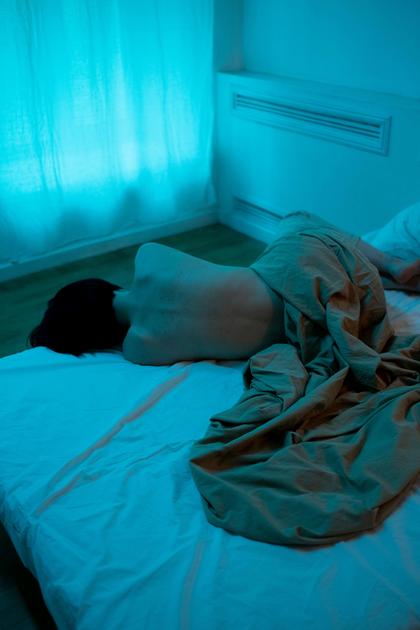Are you experiencing unexpected hair loss during menopause? You’re not alone. Many women overlook the connection between low iron levels and hair health. As hormones fluctuate, various symptoms like fatigue and anxiety may arise, often leading to hair thinning—a hidden struggle that can feel isolating. Understanding how low iron plays a role in hair loss is crucial for reclaiming your confidence and well-being.
In this article, we’ll delve deep into this overlooked connection, shining a light on how nutritional deficiencies can exacerbate common menopause symptoms such as fatigue and mood swings.
Join Thousands of Women Rediscovering Their Energy
This gentle method gave me back the vitality I thought was gone forever
With insights and practical tips, you’ll discover ways to address these issues and improve your hair health without resorting to heavy medications.
See here how many women are resolving this without heavy medications.
Understanding Hair Loss During Menopause
Menopause is a natural phase in a woman’s life, often accompanied by numerous changes in the body. Hair loss is one of these changes that many women experience, yet it often goes ignored. During menopause, hormonal fluctuations can lead to various symptoms, including thinning hair.
As estrogen levels drop, some women may notice increased shedding or a change in hair texture. This can be distressing, especially when coupled with other symptoms of menopause, such as hot flashes and mood swings. Recognizing hair loss as a common issue during menopause is crucial, and understanding its connection to other underlying factors can help women manage this phase better.
The Role of Iron in Maintaining Healthy Hair
Iron is an essential mineral that plays a significant role in many bodily functions, including the growth and maintenance of healthy hair. When the body lacks adequate iron, it can lead to hair thinning or hair loss. Iron helps transport oxygen to hair follicles, which is vital for their growth.
During menopause, women might experience iron deficiency due to fluctuations in diet and nutritional absorption. This deficiency can further exacerbate hair loss. Hence, keeping iron levels balanced is important not only for overall health but also for maintaining a luscious head of hair.
Symptoms of Low Iron You Might Overlook
Low iron can manifest in various ways, and not all symptoms are obvious. Here are some signs that may indicate low iron levels:
- Fatigue: Feeling unusually tired is often one of the first signs.
- Pale Skin: A decrease in hemoglobin can lead to paler skin tone.
- Brittle Nails: Weak, splitting nails can also indicate low iron.
- Hair Loss: As mentioned, excessive shedding can be a clear warning sign.
- Cold Hands and Feet: Poor circulation due to low iron may result in cold extremities.
If you’re experiencing any of these symptoms, it might be time to assess your iron intake and consult with a healthcare professional.
Linking Hormonal Changes to Nutritional Deficiencies
Hormonal changes during menopause can lead to nutritional deficiencies, affecting the body’s ability to absorb necessary nutrients. Many women are unaware of how closely related their hormonal health is to their nutritional intake.
For instance, low estrogen levels can cause changes in how the body absorbs iron from food. This connection emphasizes the need for women going through menopause to pay attention to their diets. Obtaining a balanced intake of nutrients, especially iron, is vital for mitigating the effects of hair loss linked to hormonal changes.
Simple Dietary Changes to Boost Iron Levels
Fortunately, there are several simple dietary changes that can help boost your iron levels:
- Incorporate Iron-Rich Foods: Include sources of heme iron, such as lean meats, fish, and poultry, in your diet.
- Add Plant-Based Iron Sources: Foods like lentils, beans, tofu, and spinach are also great sources of non-heme iron.
- Pair Iron with Vitamin C: Consuming vitamin C-rich foods, such as oranges or bell peppers, with iron-rich meals can improve absorption.
- Avoid Calcium with Iron: It’s best to avoid calcium-rich foods when consuming iron, as they can hinder absorption.
These dietary changes can be simple to implement and make a significant difference in your overall iron levels and, by extension, your hair health.
How Iron Deficiency Impacts Your Mood
Iron deficiency doesn’t only affect your physical appearance; it can also have profound effects on your mood. Research shows that low iron levels can lead to feelings of anxiety and depression. This correlation can be particularly concerning during menopause, when emotional stability can already feel precarious.
Women may find themselves feeling irritable or unmotivated, which can compound the stress of dealing with physical symptoms like hair loss. By addressing iron levels, not only can you improve hair health, but you may also find an improvement in your mood and overall sense of wellbeing.
Holistic Approaches to Menopause Symptoms
Many women are now turning to holistic approaches to manage menopause symptoms. This might include practices like mindfulness, yoga, and herbal supplements, which can help in relieving symptoms naturally.
Incorporating these holistic methods along with improving your diet can provide a well-rounded approach to tackling everything from hot flashes to hair loss. It’s all about finding the balance that works for each individual woman.
Empowering Women: Sharing Experiences
Sharing experiences can be a powerful tool for women navigating the challenges of menopause. Many women find comfort and encouragement in knowing they are not alone in their struggles.
Consider joining support groups, whether online or in person, where women share their personal journeys and solutions. This sense of community can provide a safe space to express frustrations and celebrate little victories, such as solving issues related to hair loss and other symptoms.
It’s Never Too Late to Seek Solutions
Many women hesitate to seek solutions for menopause-related woes, often feeling that they should just tough it out. However, it’s important to remember that it’s never too late to seek help and find solutions that work for you.
Whether it’s consulting with a nutritionist or exploring different therapies, taking proactive steps can lead to significant improvements in your quality of life. Don’t hesitate to seek guidance on properly managing not just hair loss but overall menopause symptoms.
Taking Steps Toward Health and Balance
Improving your health during menopause is definitely a journey, but taking small, manageable steps can make the experience more enjoyable. Start by assessing your diet, being mindful of your iron levels, and incorporating options that enhance your well-being.
The connection between low iron and hair loss during menopause is a real concern—one that deserves attention and care. It’s crucial to embrace these changes with compassion for yourself and to explore options available for support. See how many women are solving these issues without heavy medications. Click here to learn more.
Always remember, it is possible to overcome the challenges of menopause and improve your overall health. Many women have walked this path and found ways to manage their symptoms with simple, effective strategies. Your journey towards balance and well-being can begin today!
SEE MORE
Join Thousands of Women Rediscovering Their Energy
This gentle method gave me back the vitality I thought was gone forever







